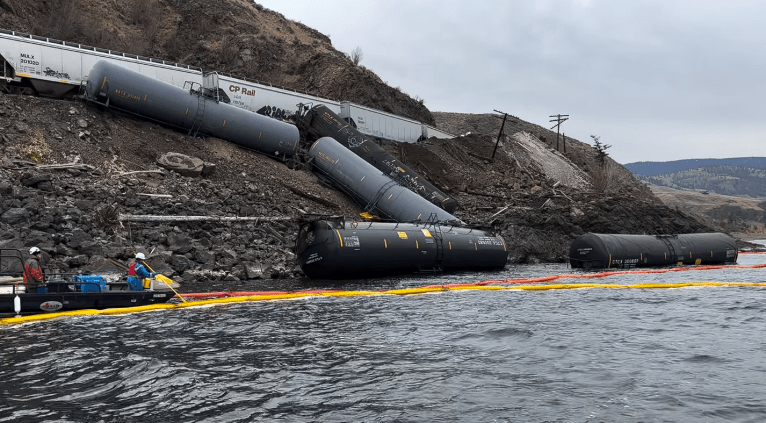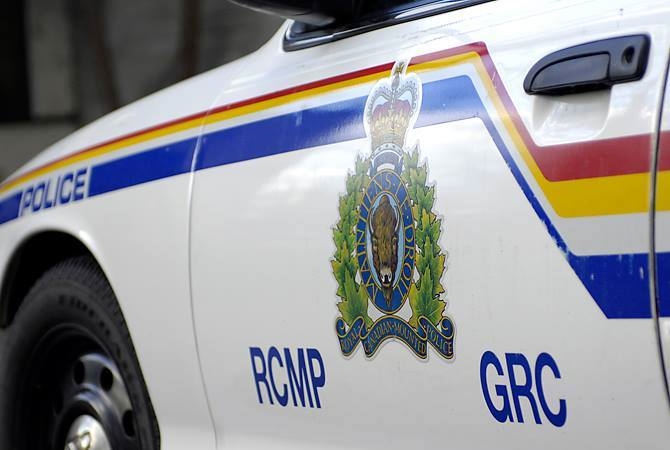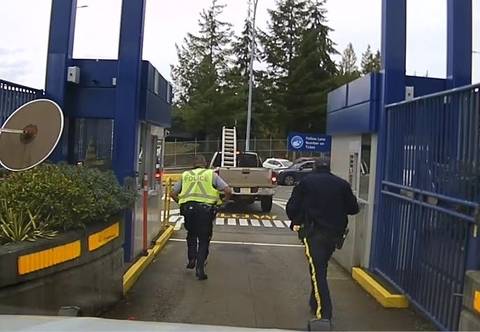
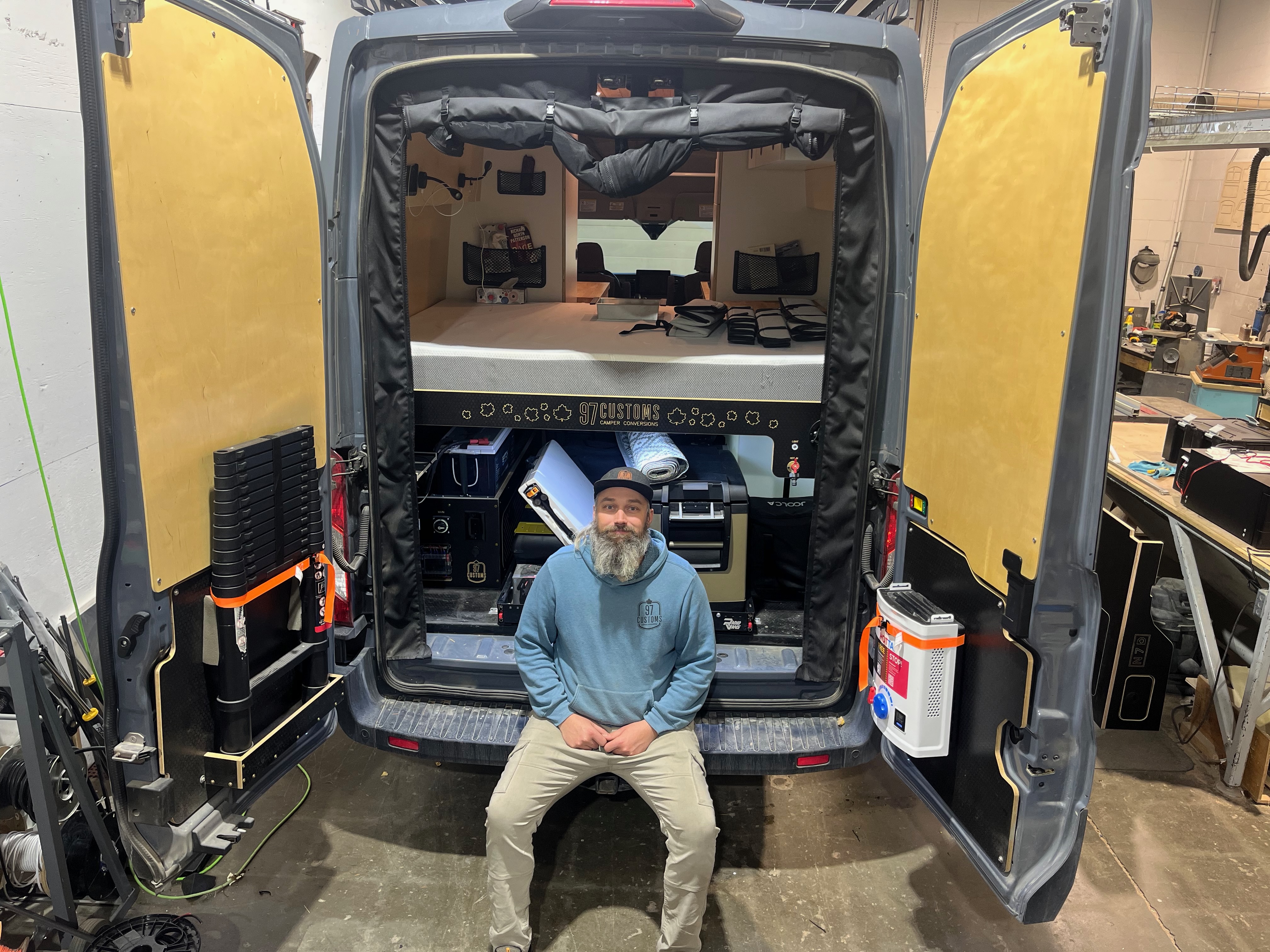
In preparation for being laid off, Vernon resident Calvin de Boer had a camper van all kitted out, money in the bank, and was ready to hit the open road for a year and go travelling.
Then the COVID-19 pandemic came along and kiboshed his plan.
With time on his hands, he began helping a friend retrofit a van into a camper van and had an idea.
“I started building, built one van and thought, ‘I can do this,’” de Boer told iNFOnews.ca. “So… it just kind of went from there.”
Now, five years later, de Boer owns 97 Customs, a business that retrofits vans into tailor-made camper van conversions.
Customers bring their empty vans and de Boer customizes them to include everything from beds and fridges, to solar panels and air conditioning.
While people were already converting vans into campers, the pandemic fuelled the demand for domestic travel and highlighted an already growing market.
That demand helped kick-start de Boer’s business but it wasn’t a pandemic fad and five years later, he says he’s still busy.
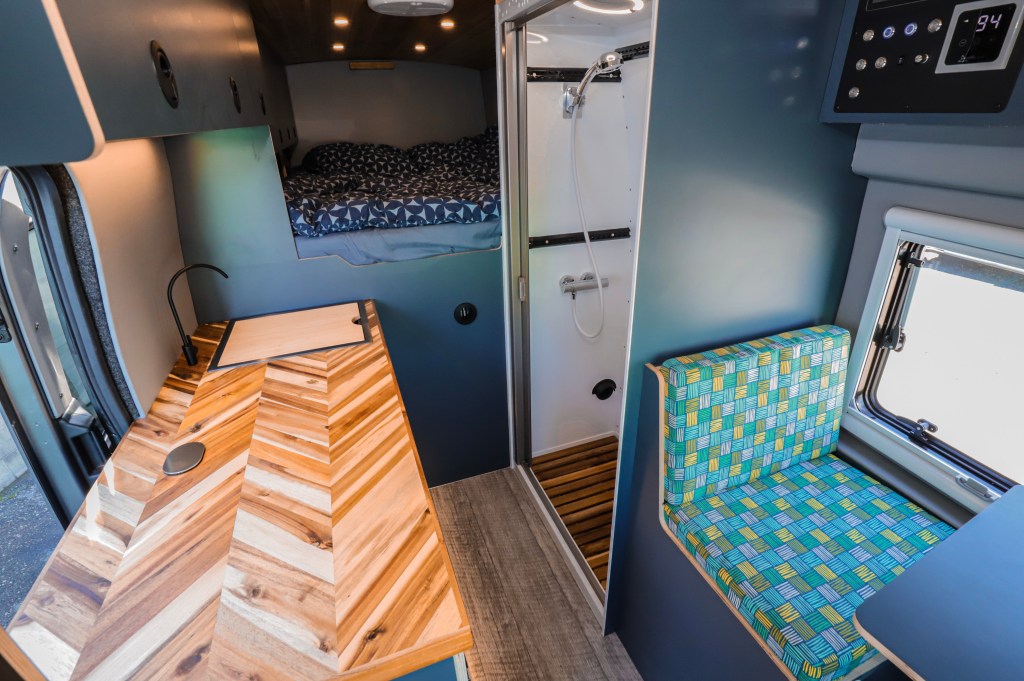
He started off in his driveway before renting a shop, and in his busiest year, he did four full custom refits. This year, he’s done two full custom refits and between 10 to 15 smaller jobs. Often customers will do some work themselves but come to de Boer to fit power and solar, and other parts.
About 18 months ago, he stopped being a one-man shop and hired an employee who takes care of a lot of the technical drawings and Computer Numerical Control machining.
As every van is different, and customers have different wants and needs, each and every project he’s done has been unique.
“The variety is challenging at times,” he says. “Maybe it’s the same van, but it’s not the same build… so you’ve got to able to troubleshoot and problem solve a lot of different stuff.”
Most customers also have a pretty strong idea of what they want.
“They’ve spent hours and hours on YouTube, figuring out the layouts, figuring out power, figuring out all of that,” he said. “You kind of have to walk it back a bit and say, ‘OK, we can’t necessarily fit all of that.’”
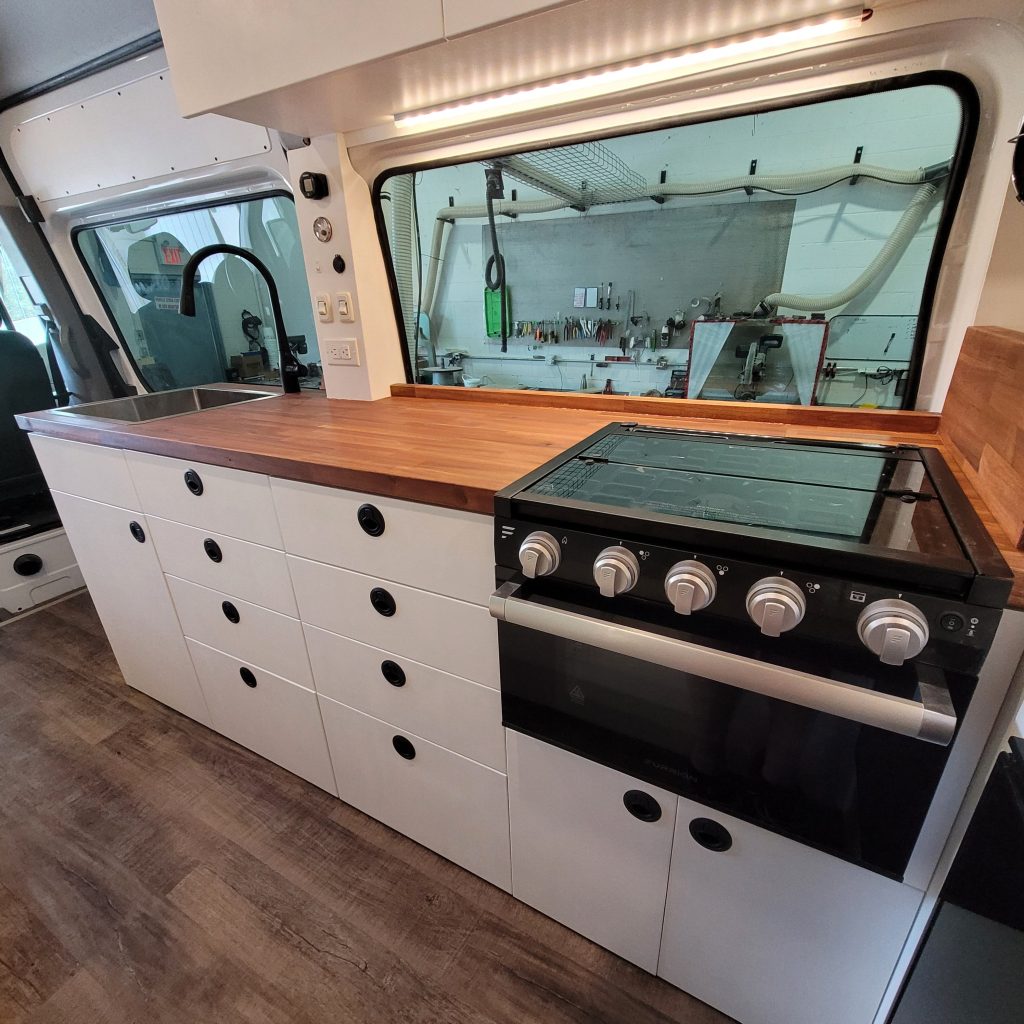
But, stepping into a his latest project, a Sprinter van, there is a lot fitted inside.
The windows have been replaced so they can open. There’s a two-ring propane burner, a double bed, a fridge, air conditioning and a 40-gallon water tank. There’s a hot water on demand shower, and solar panels on the roof. The electrical system runs from a lithium-ion battery, and a person could spend two weeks off-grid without an issue.
Step out back, and a five-foot-long gear tray pulls out from under the bed, where there’s storage, a second fridge and a barbecue. A curtain pulls around for the hot water on demand shower.
While there are numerous RV companies on the market, most are producing vehicles far bigger than de Boer’s customers want.
“People… look at an RV and they go, ‘OK, it’s got all of this stuff that I don’t need,’” he said. “And they’re always designed to be plugged in or on a generator.”
97 Customs customers want the ability to be off-grid for decent amounts of time.
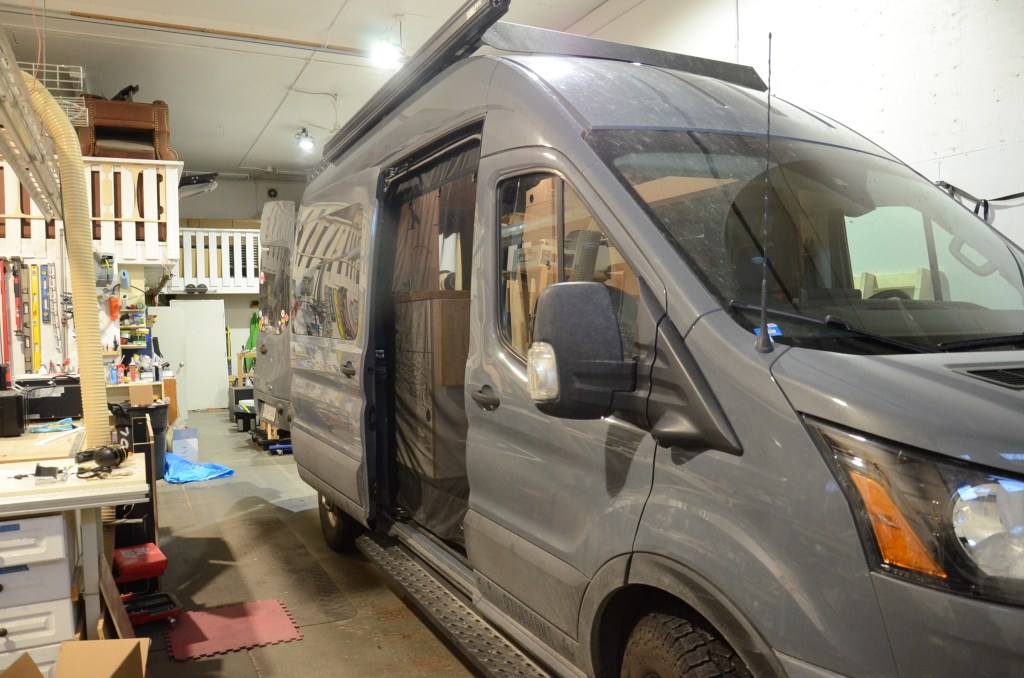
de Boer’s mainly works on cargo vans, with Mercedes Sprinter, Ford Transit and Dodge ProMaster being the most popular, but he’s also worked on Dodge Caravans and a Honda CRV. He’s also seen an increase in overland trucks and has worked on Jeeps and Toyota Tacomas.
“We’ll pretty much work on almost anything, depending on what you want done,” he said. “And, and I just try to be as straightforward as I can with expectations and go from there.”
The popularity of the camper van has changed the stereotype about who buys them and de Boer’s customers are a far cry from any stereotypical image of a van dweller.
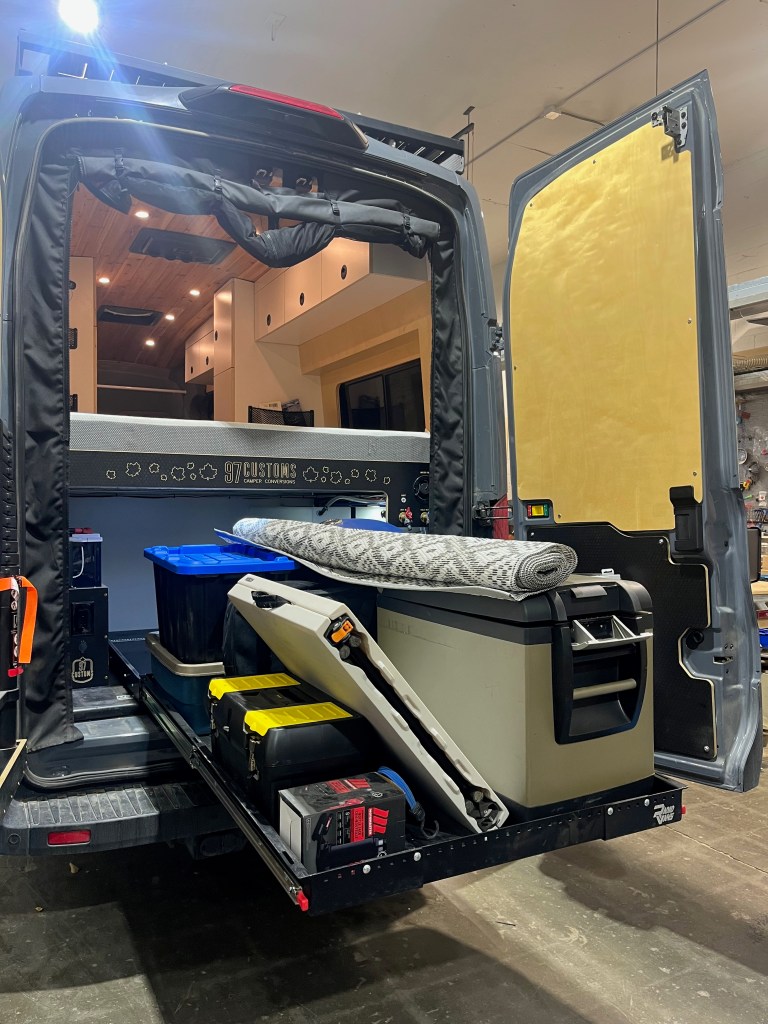
His customers are normally 50-plus, soon to retire and looking to travel. They’re also people who don’t want off-the-shelf products and take the time to focus on design details and functionality.
de Boer said a full custom build will take hundreds of hours of labour and a fully completed van costs around $100,000. The customer also has to buy the van first, which costs anywhere from $30,000 to $100,000.
Not every build costs six figures, though, and de Boer has worked on an array of different designs, big and small, some with far more modest pricing.
Customers come from all over the province, and while there are others doing similar things on the coast and in Calgary, 97 Customs sits in a unique position, being the only custom builder in the Interior.
So why the name 97 Customs? It’s BC’s longest highway, stretching from the Yukon border down to the US border, and then continuing to Oregon.
de Boer never did get to go travelling, but he did recently finish driving all of Highway 97 heading down to Oregon, although not in a custom camper van.
“My preferred method of travel is motorcycles,” he says.
For more information about 97 Customs, go here.
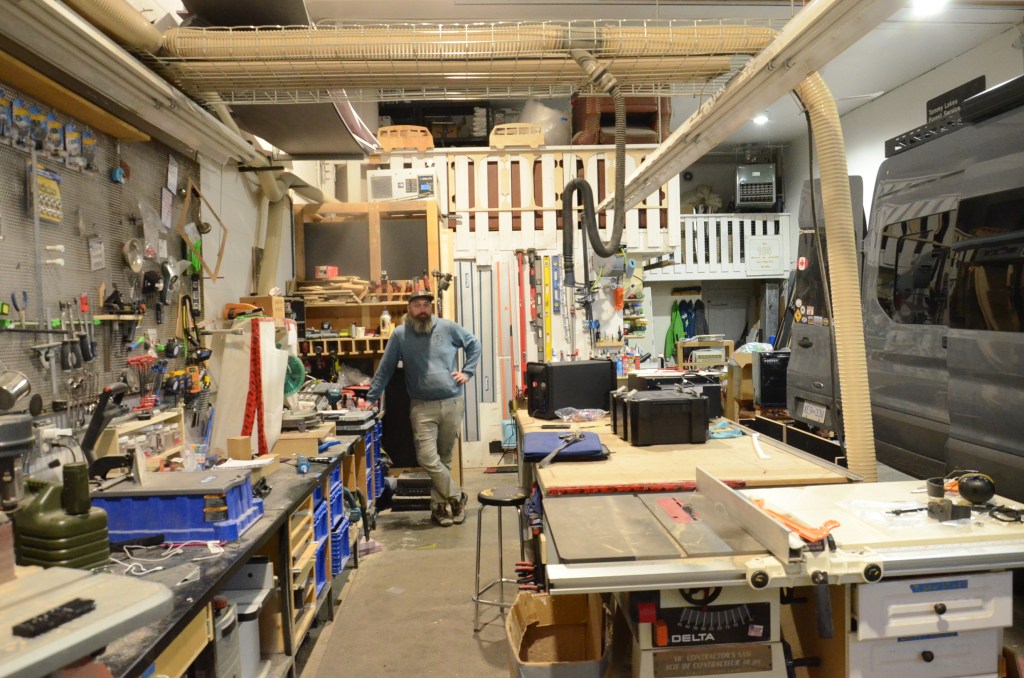
Join the Conversation!
Want to share your thoughts, add context, or connect with others in your community?
You must be logged in to post a comment.







